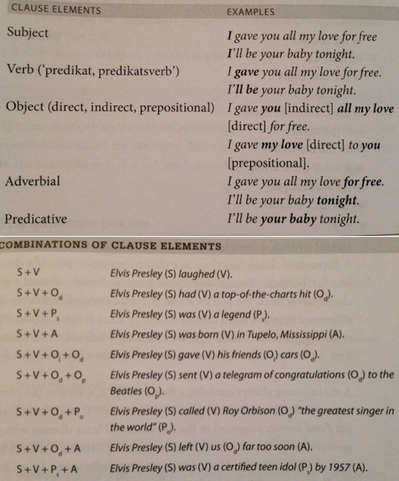Why use P instead of V at clause level
|
In UGE, Chap 3.4, Estling (the author) describes the Clause elements, and later in Ch 3..4.7, she describes Clause types.
In line with many educational grammar books, V (verb) is used as a Clausal element. My viewpoint, in line with Huddlestone & Pullum's Cambridge Grammar of English, is that this is fundamentally misleading and unhelpful. As such, we will be using the letter P (for Predicator), and not V (for Verb). Wait, what, why? Why indeed. Because V is used for tradition's sake in line with many other grammar books out there BUT it can make things pretty darned confusing for students. Let me explain, as follows: Clausal elements (Subject, Adverbial, direct Object, etc) describe how they FUNCTION within a clause. Meanwhile V (verb) is a form. Now, I know this might not mean so much to you just now, but I ask that you give me the benefit of the doubt for the time being ... or at least until you start drawing syntax trees :-) |
Clause elements describe function, not form
This video tutorial was a few years ago whilst using another grammar book. Although I refer to this 'other' book my criticism is the same then & now. So too is the explanation that I offer. Also, please view function/form which will help you in your understanding.
|
|
|
